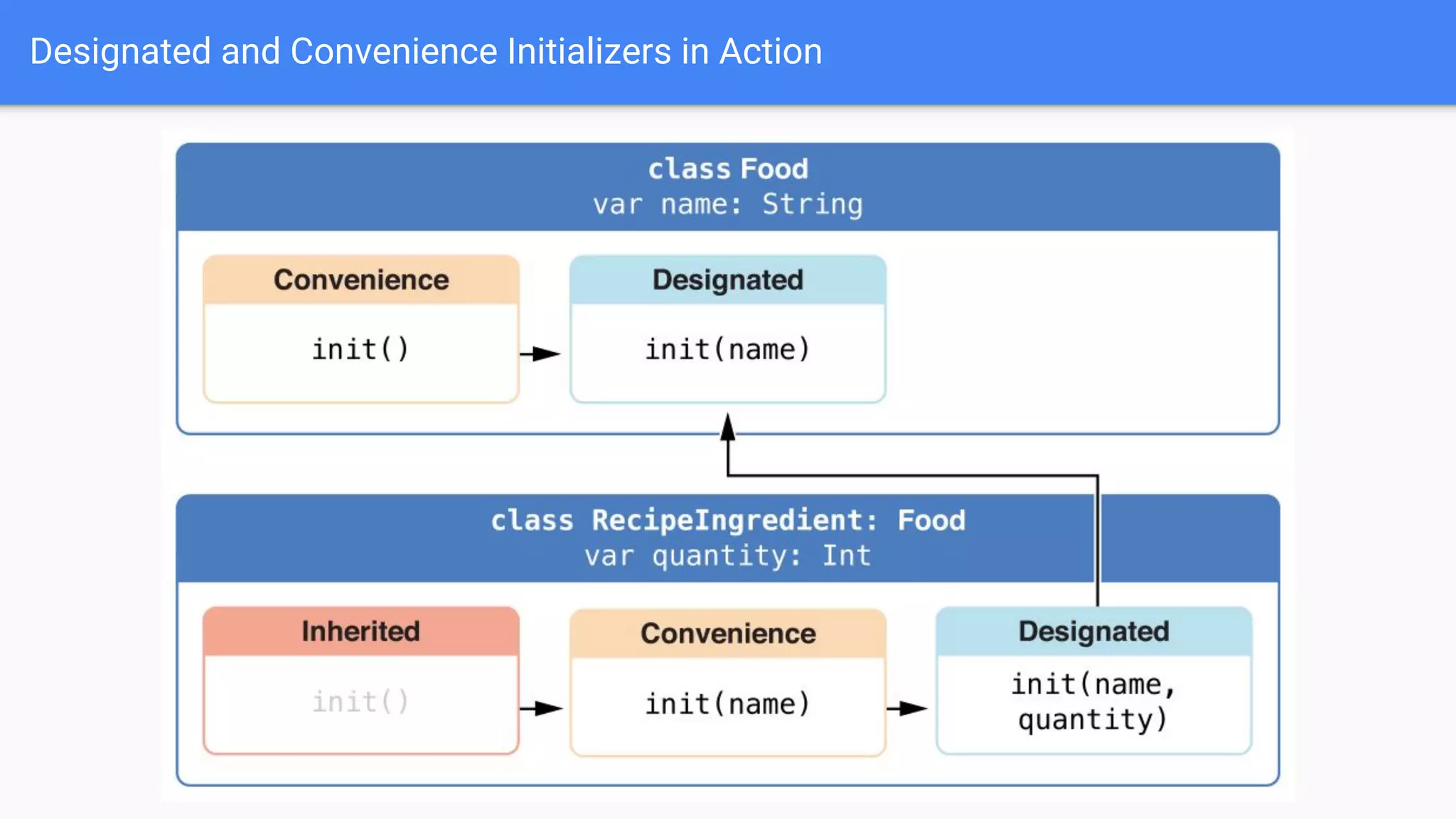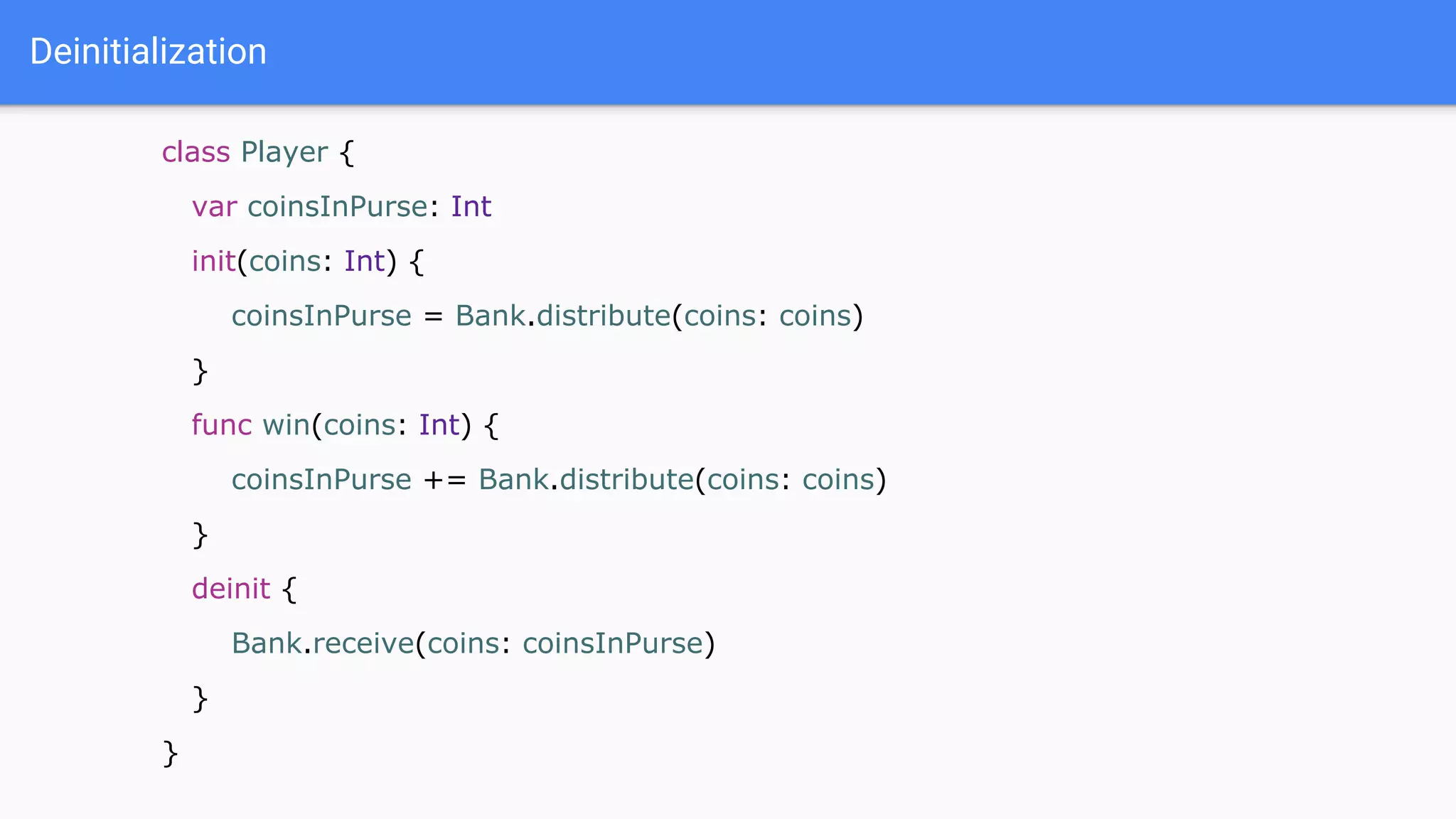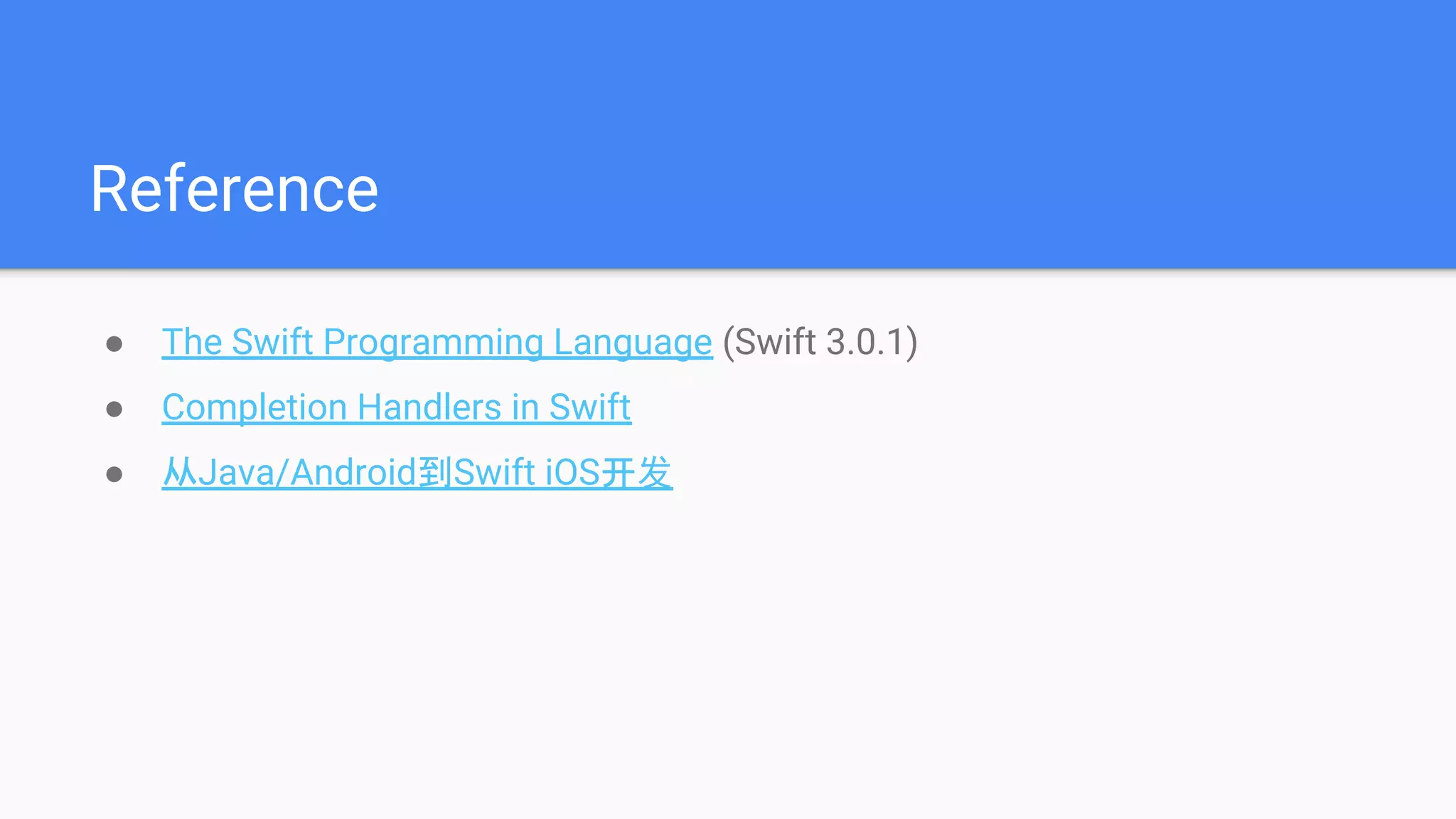The document discusses various Swift programming concepts including data structures, classes, structs, enums, properties, methods, inheritance, initialization, and deinitialization. It provides code examples to demonstrate how to define and use these concepts in Swift, such as defining a class with properties and methods, initializing structs and classes, using property observers, and delegating initialization between classes.
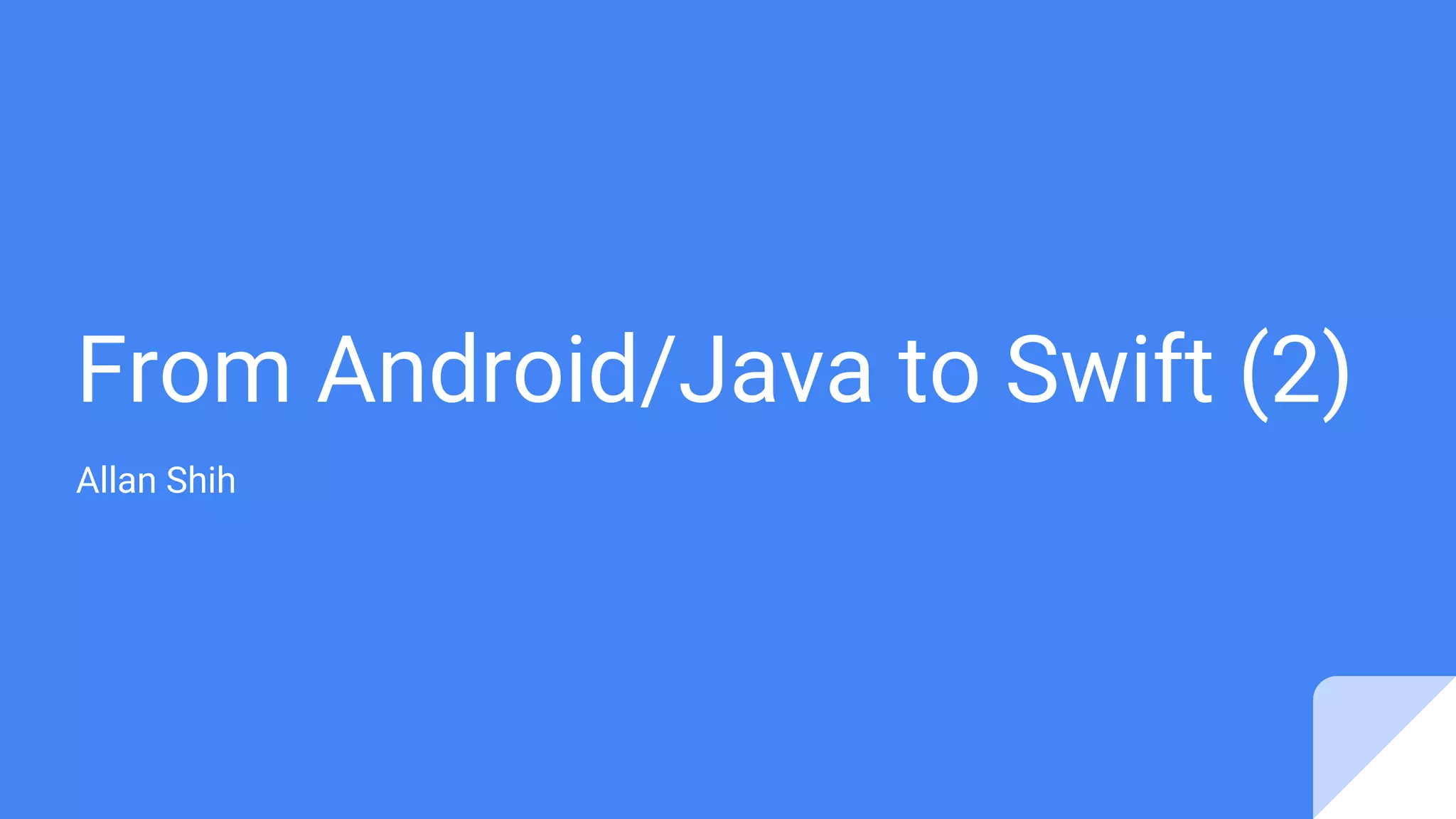
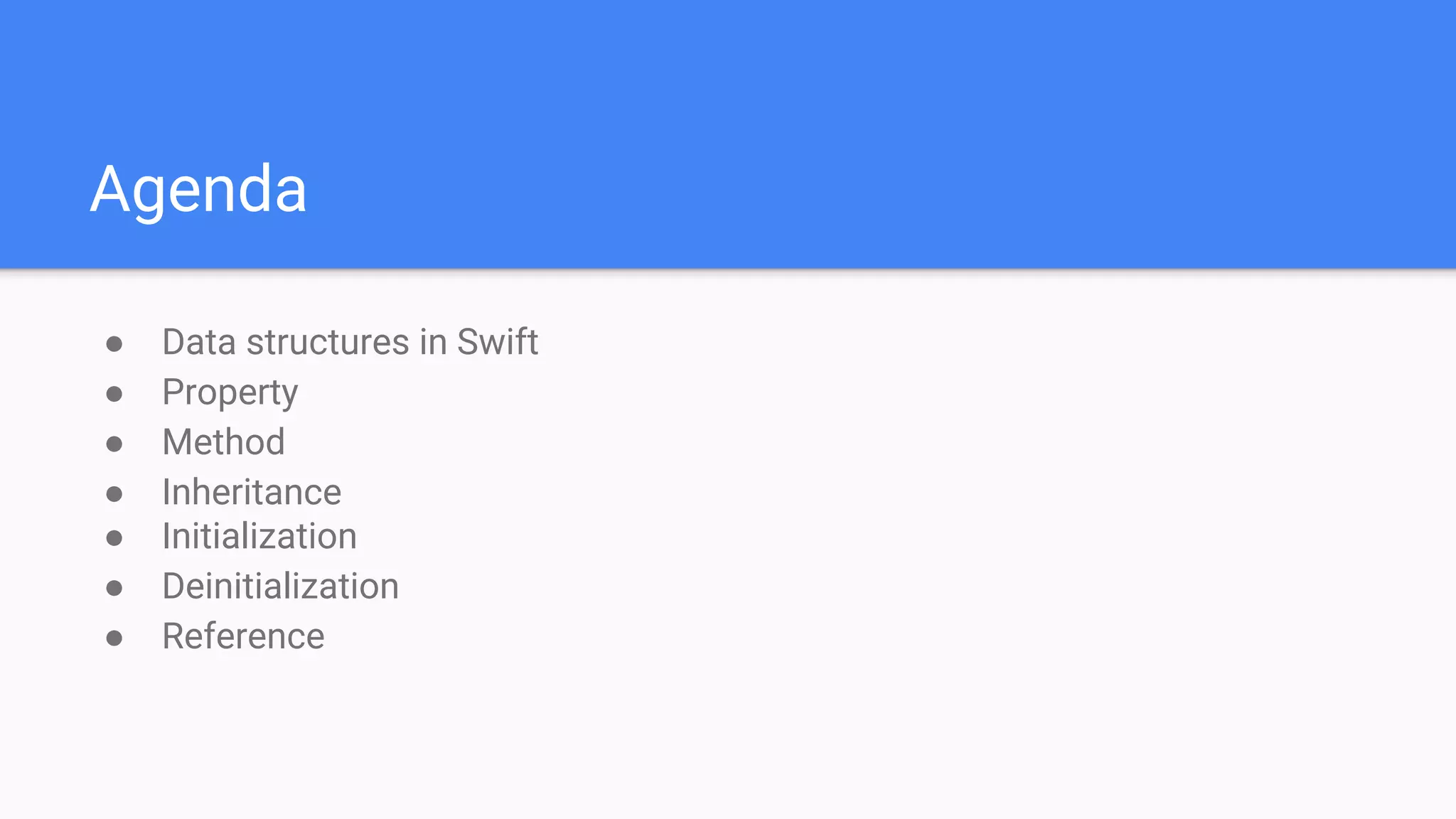
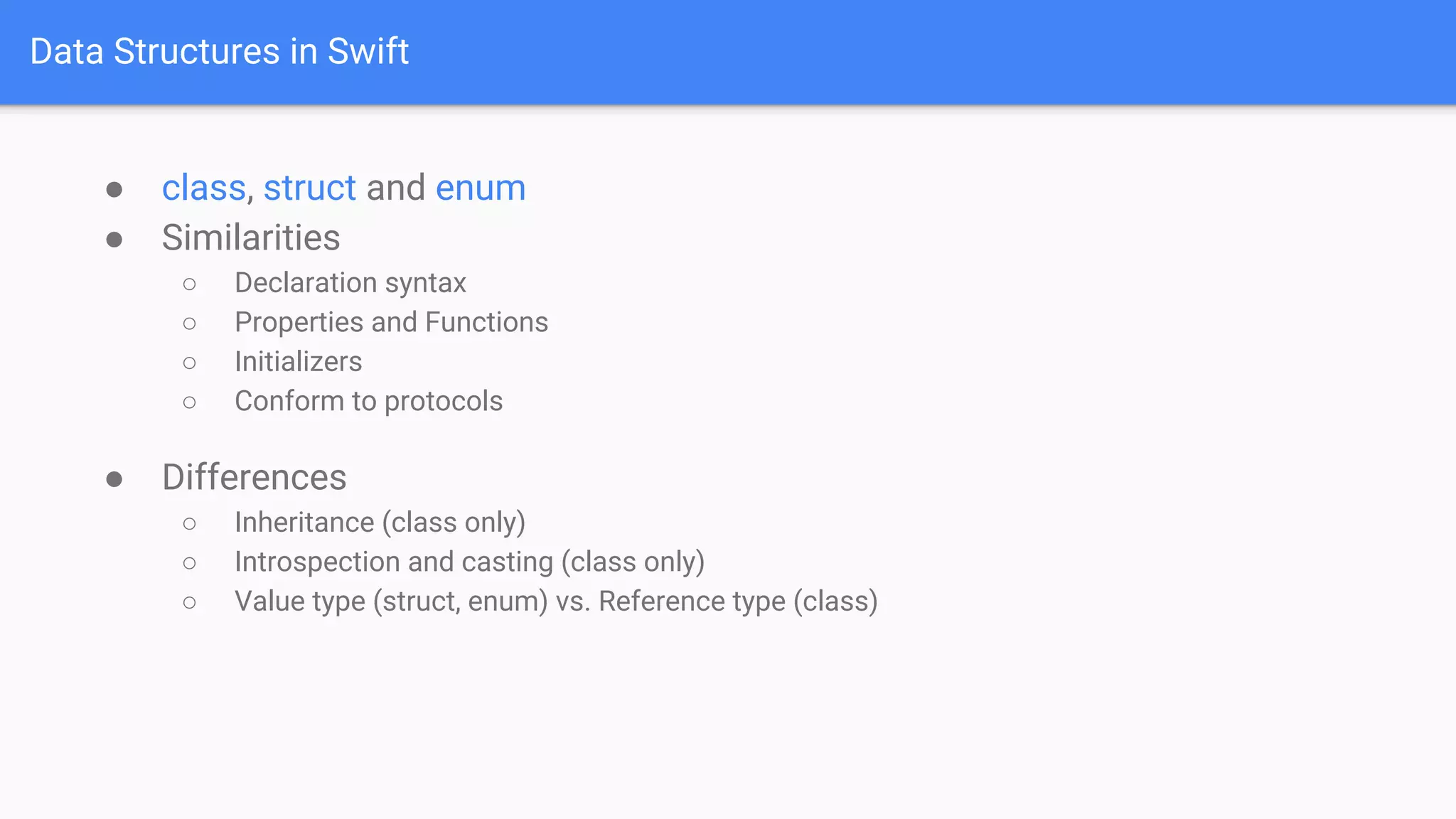
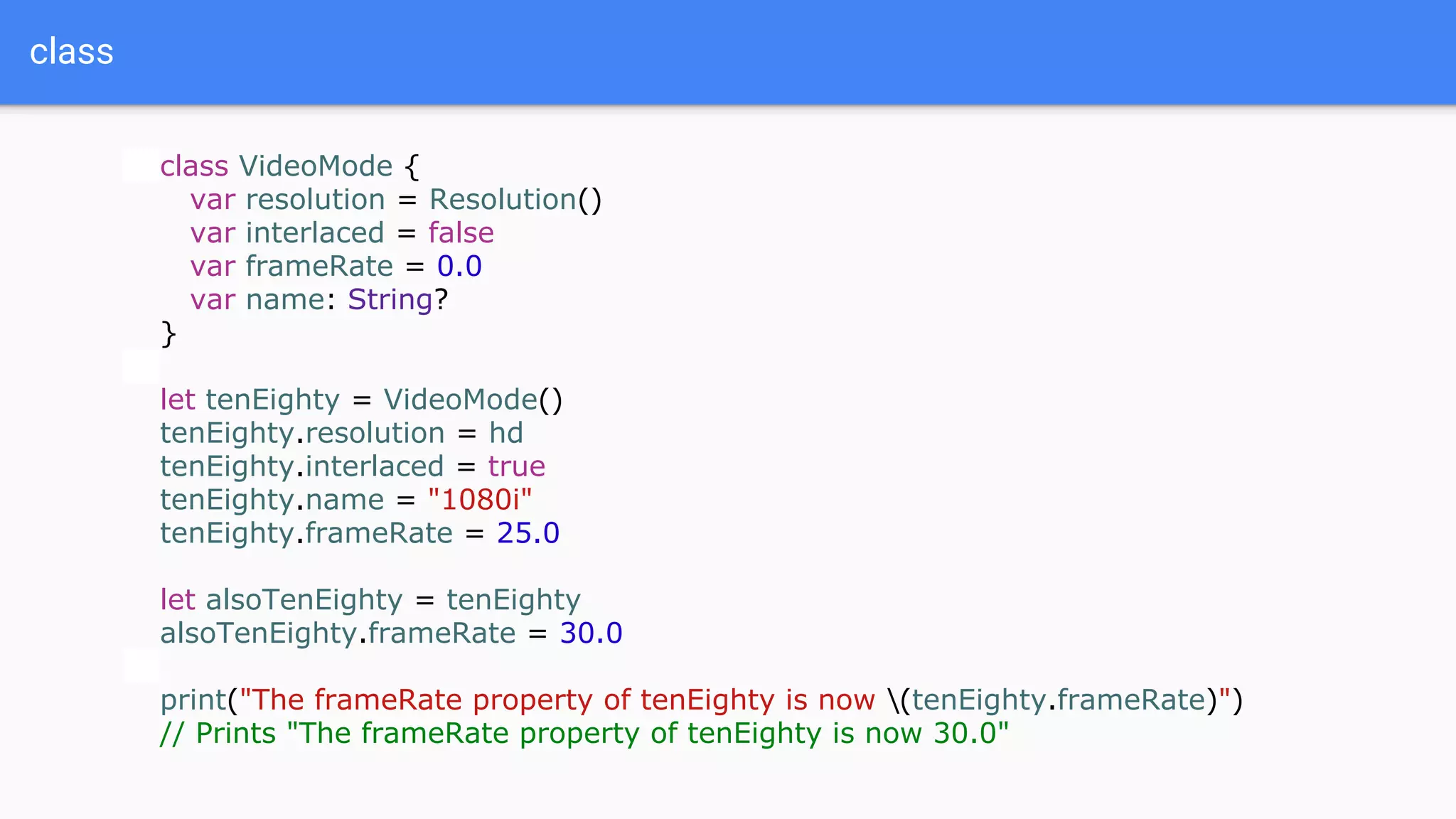
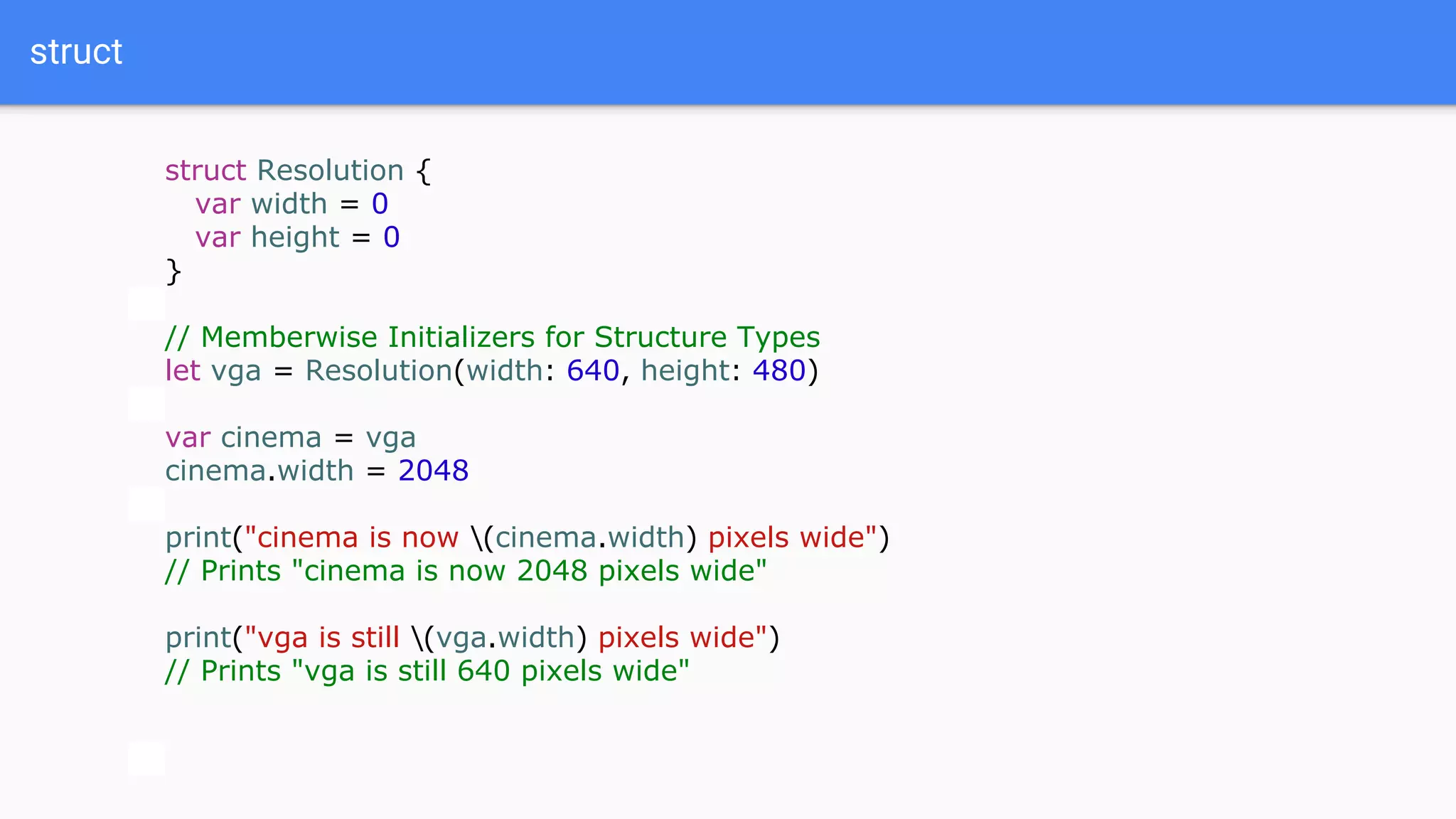
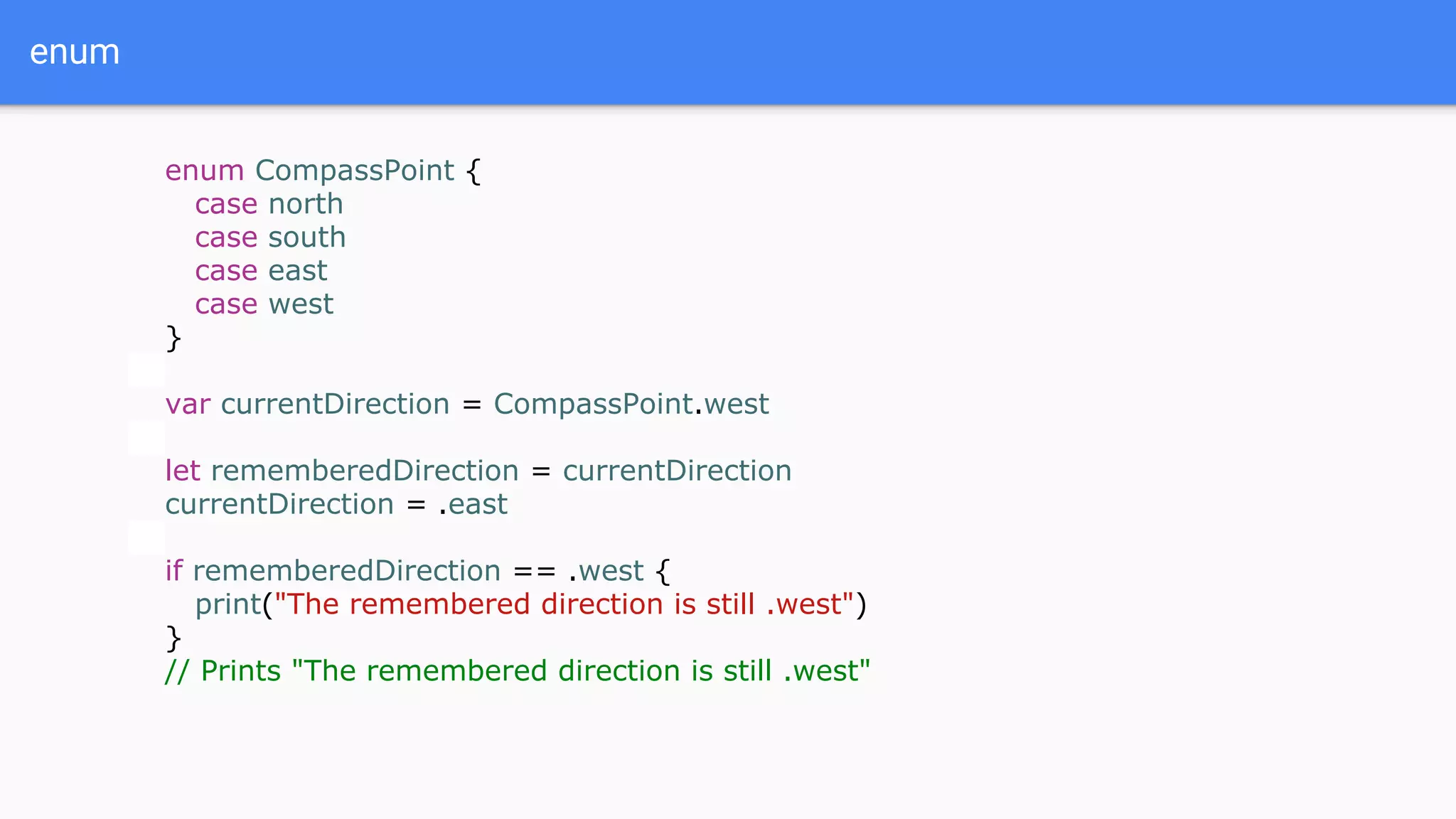
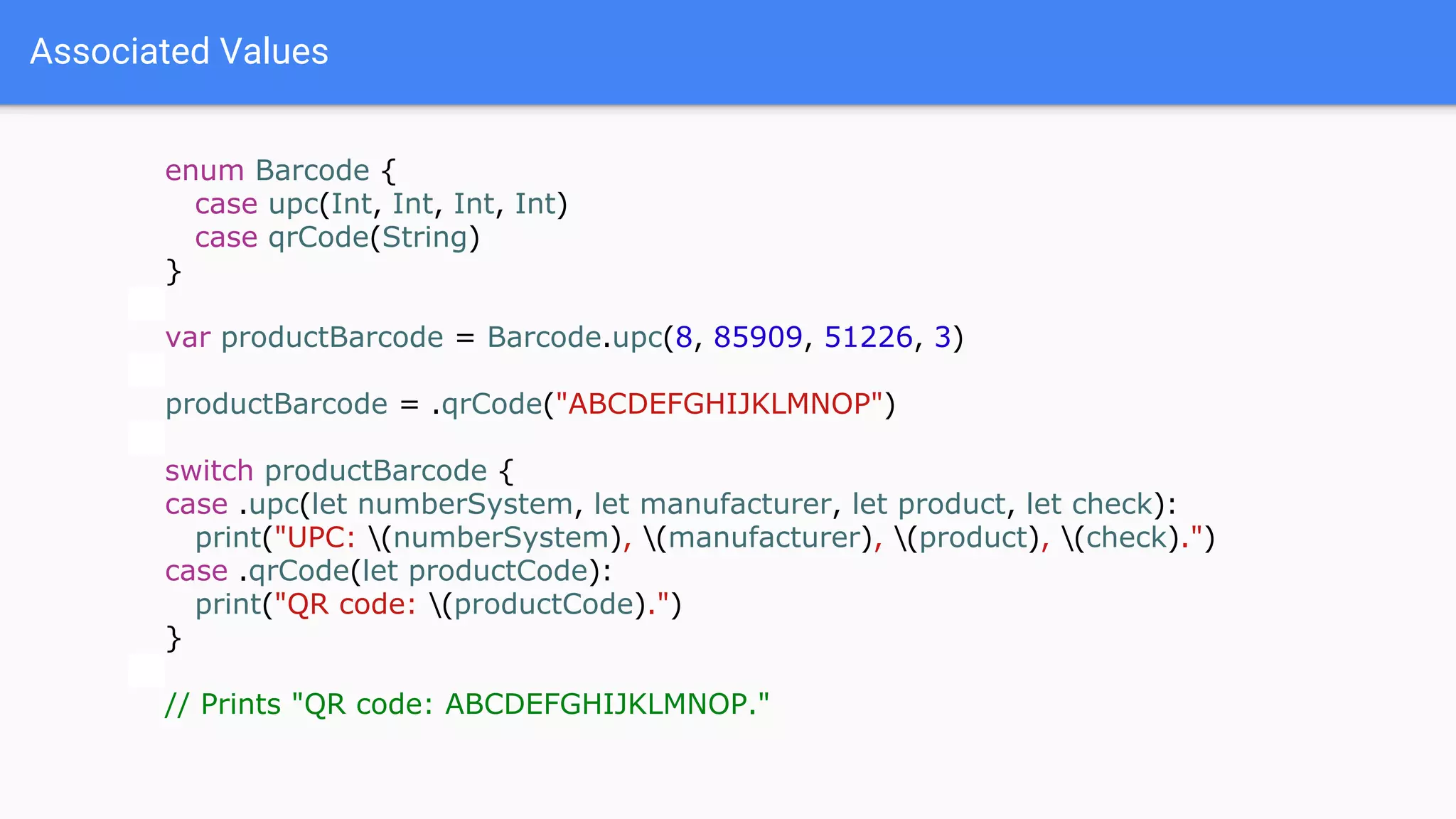
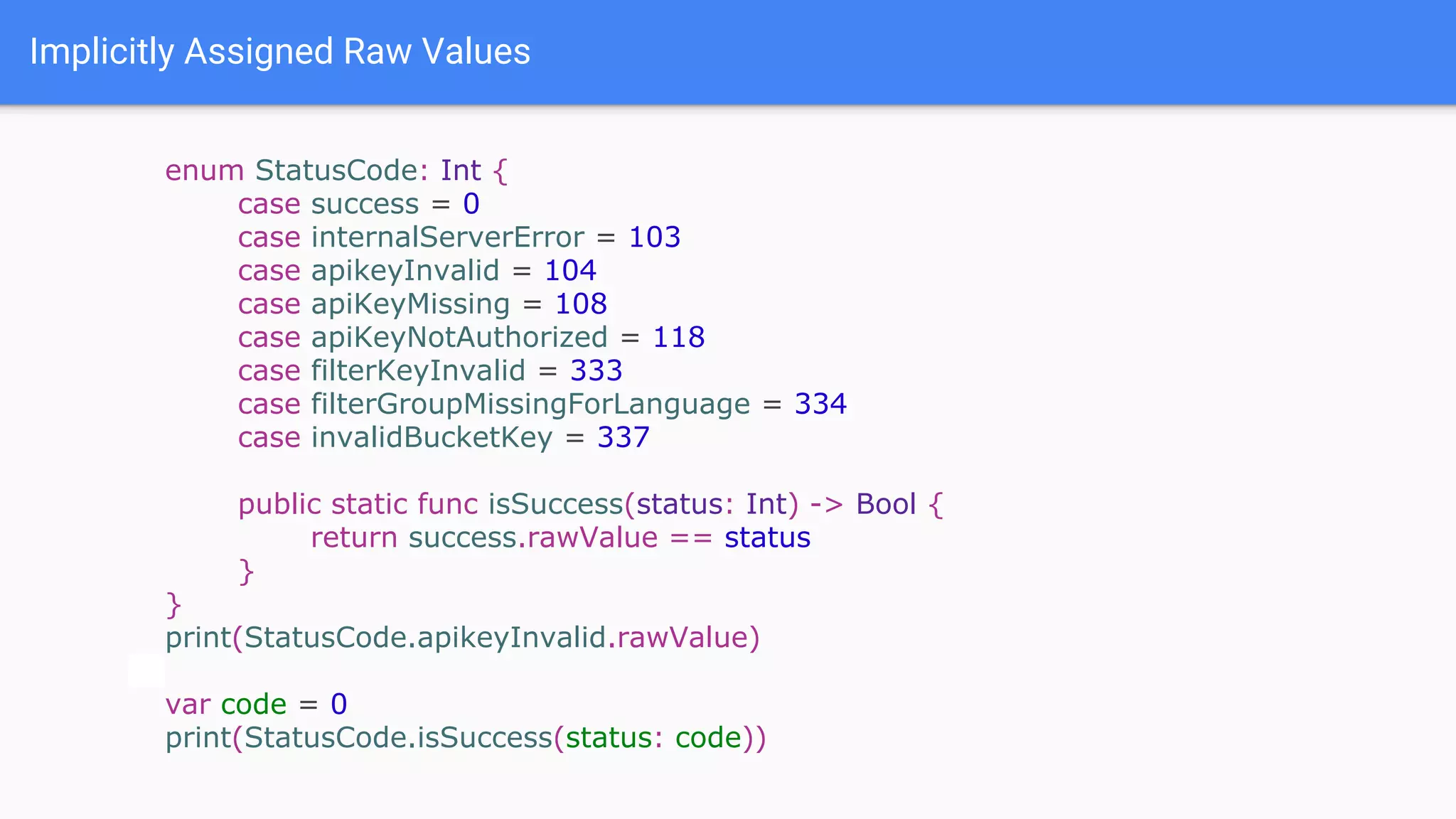
![Lazy Stored Properties
class DataImporter {
var fileName = "data.txt"
// the DataImporter class would provide data importing functionality here
}
class DataManager {
lazy var importer = DataImporter()
var data = [String]()
// the DataManager class would provide data management functionality here
}
let manager = DataManager()
manager.data.append("Some data")
print(manager.importer.fileName)
// the DataImporter instance for the importer property has now been created](https://image.slidesharecdn.com/fromandroid2fjavatoswift2-180706025311/75/From-android-java-to-swift-2-9-2048.jpg)
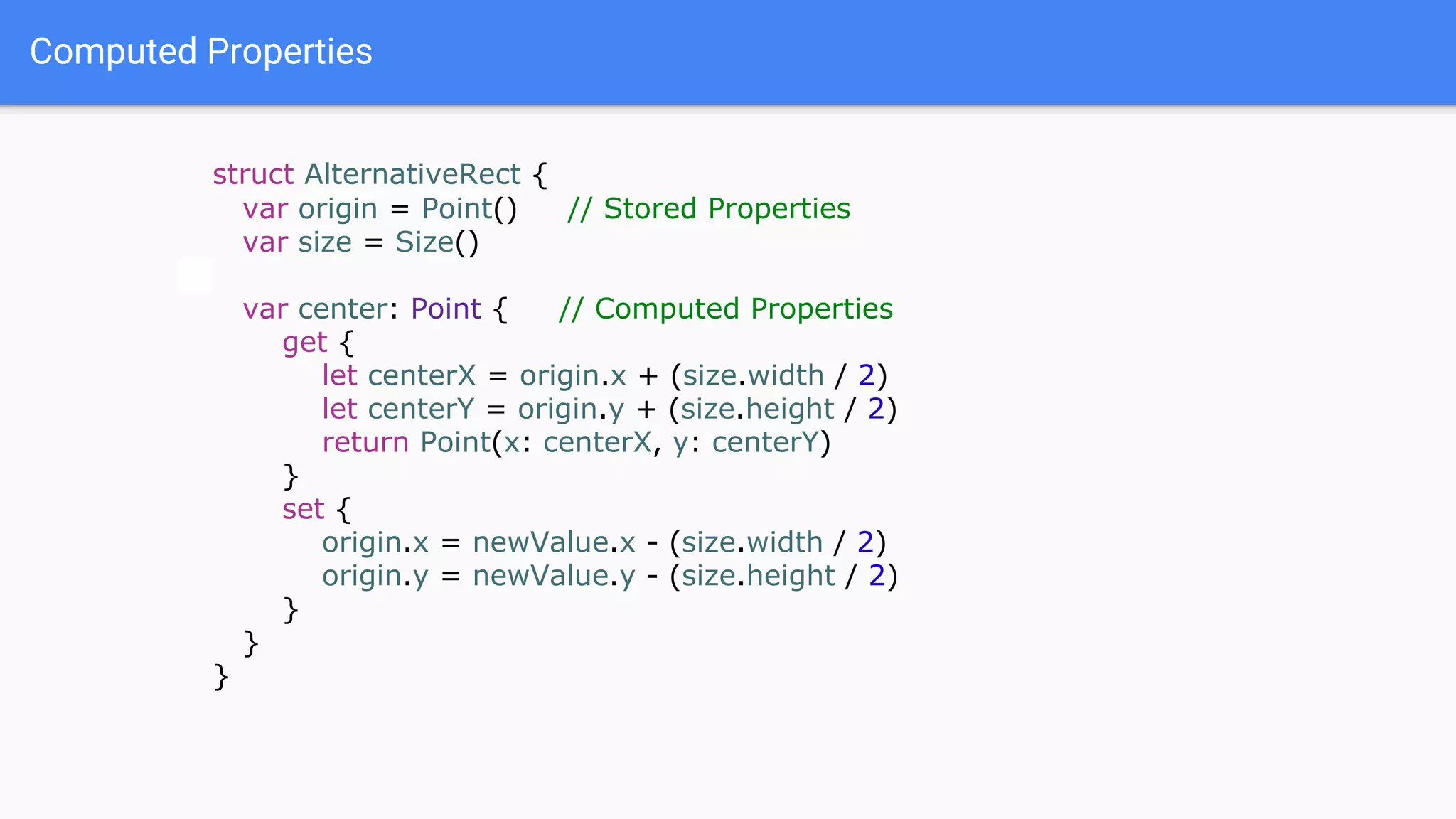
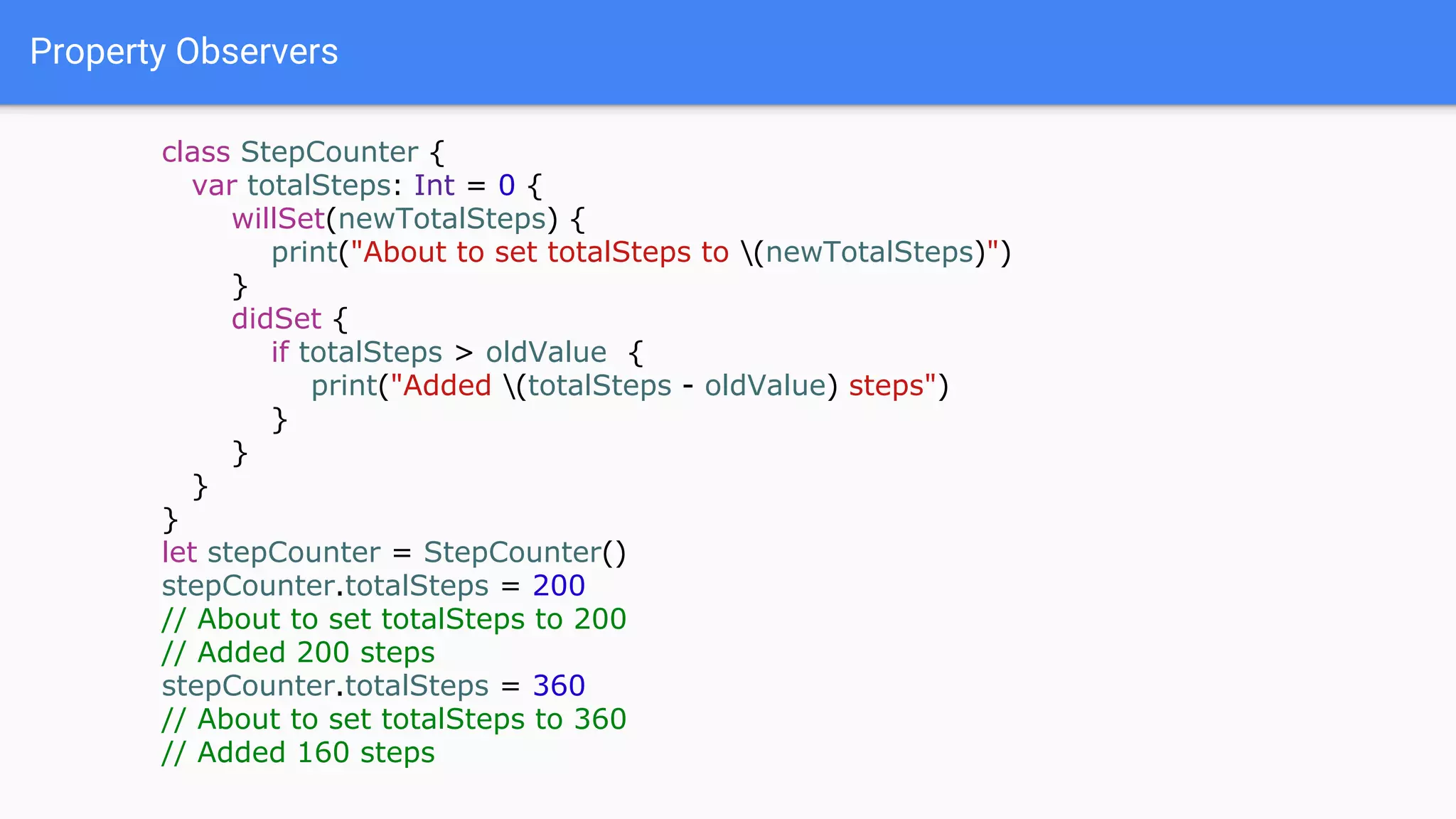
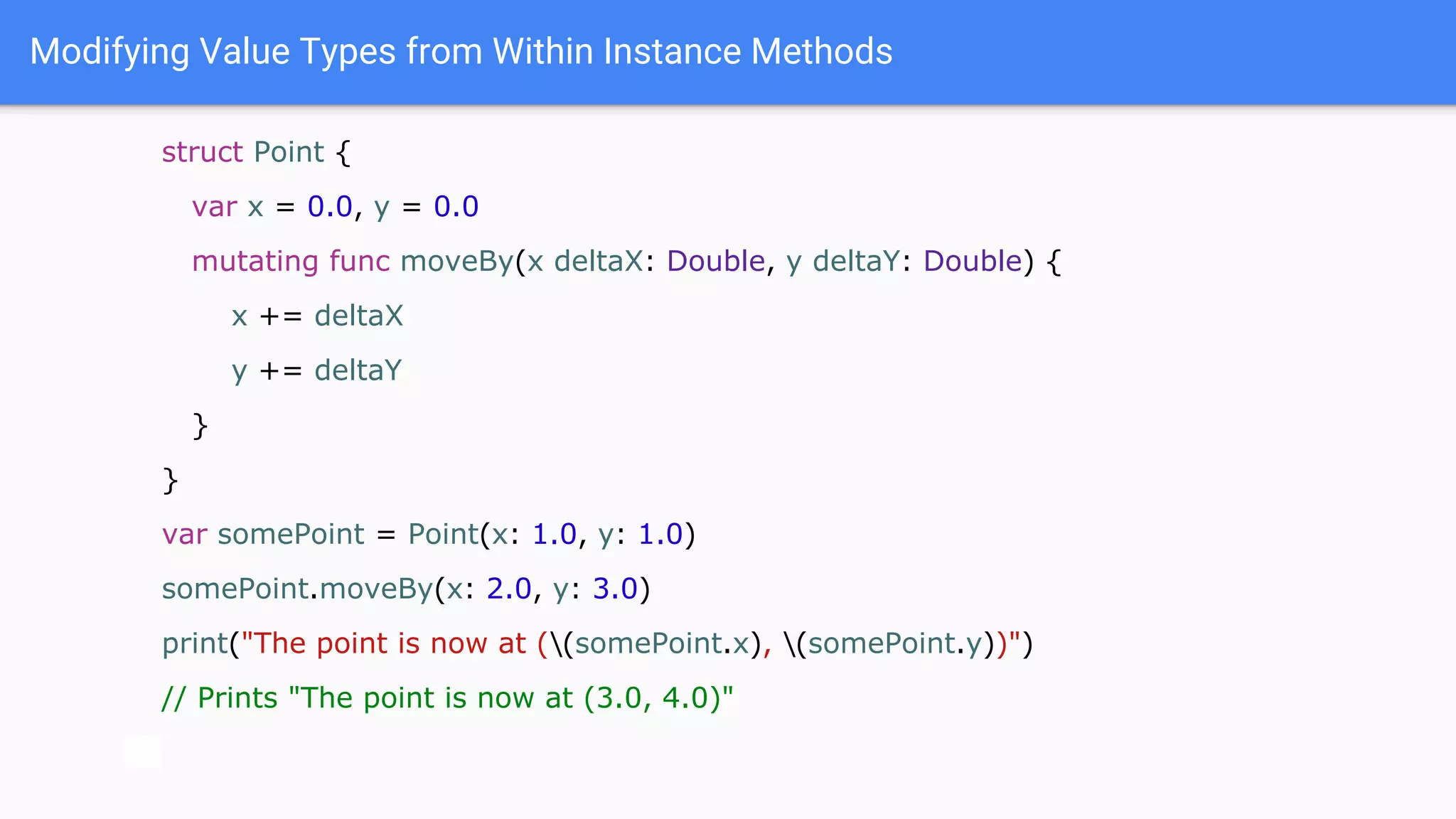
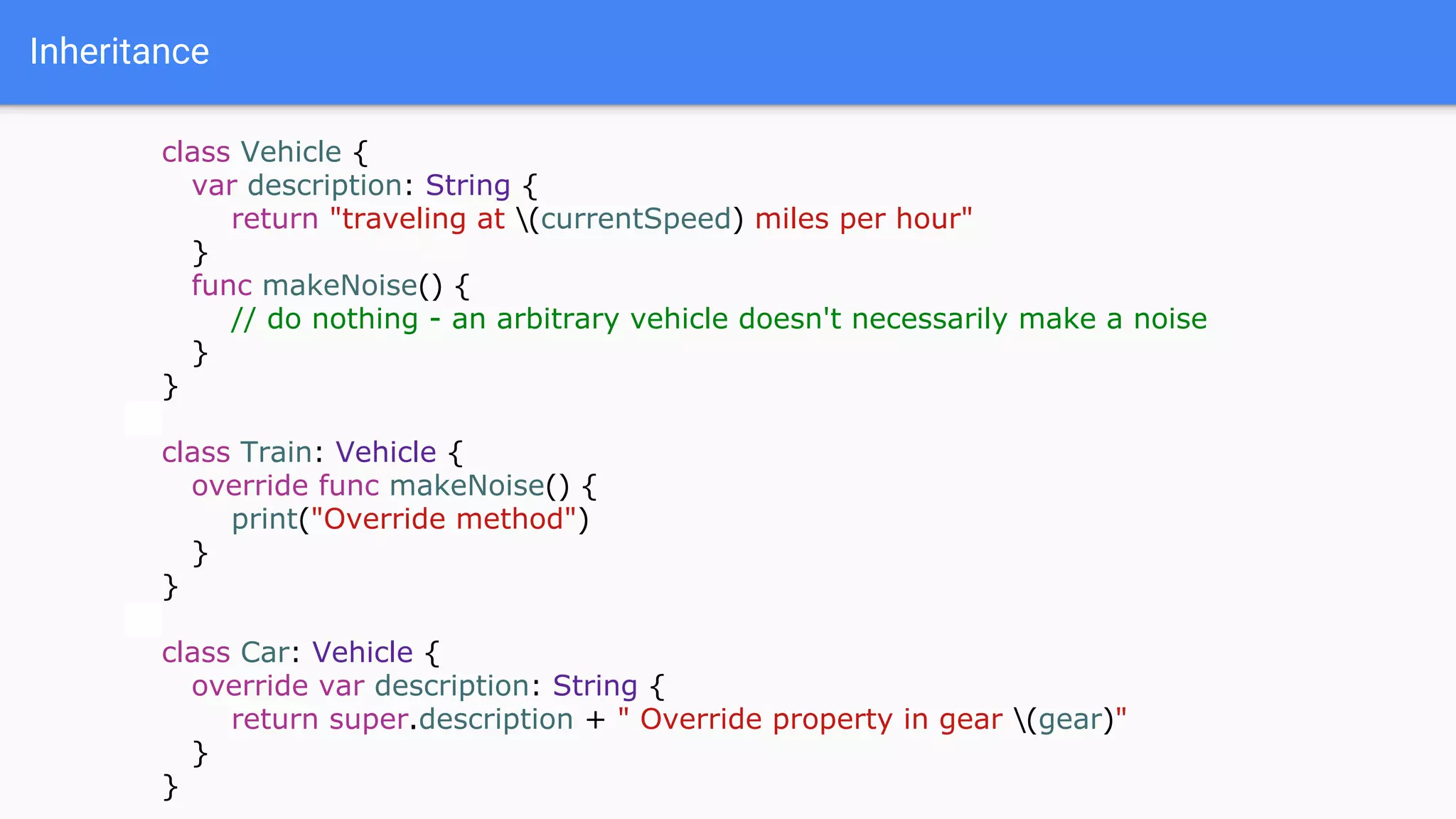
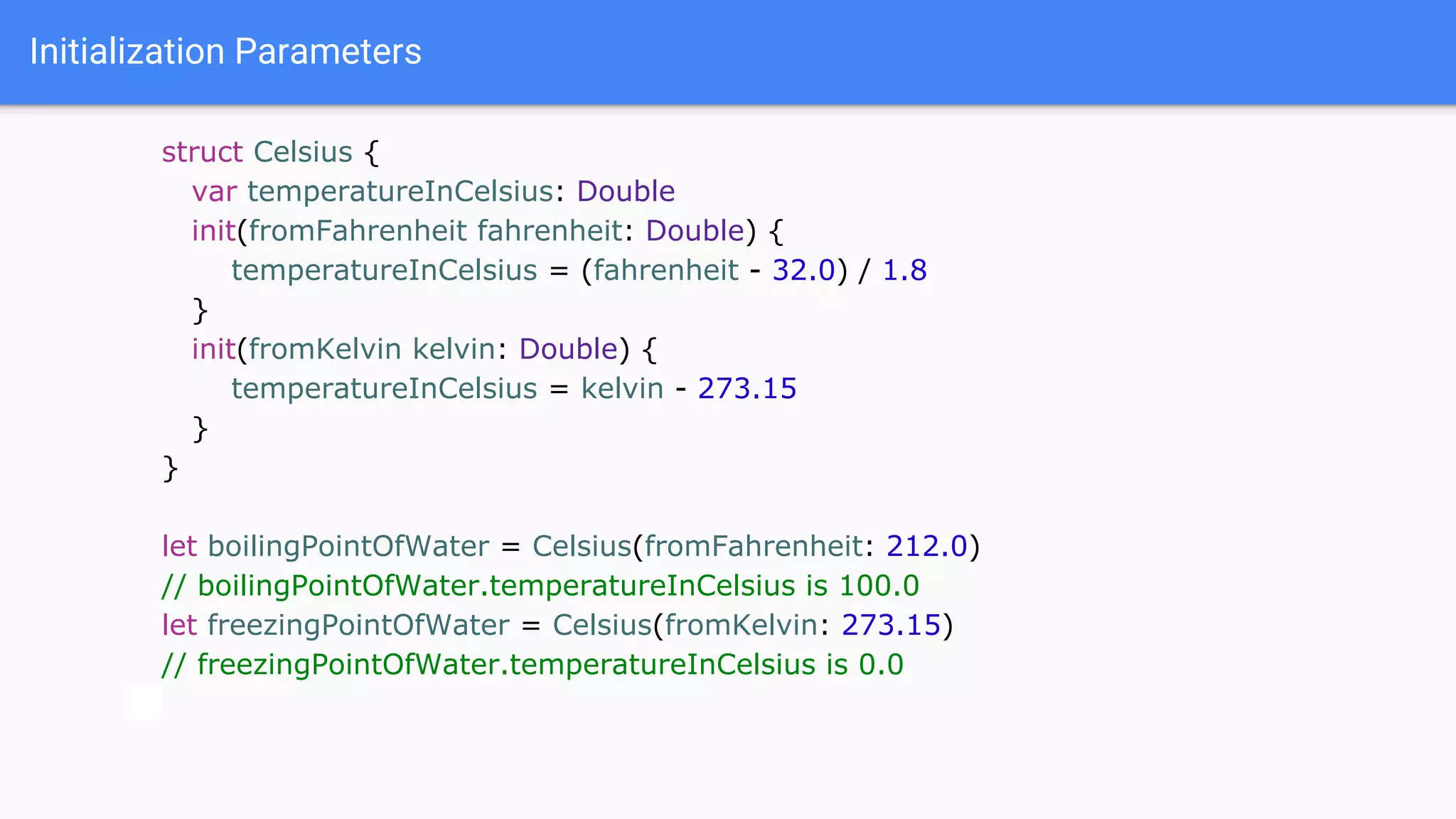
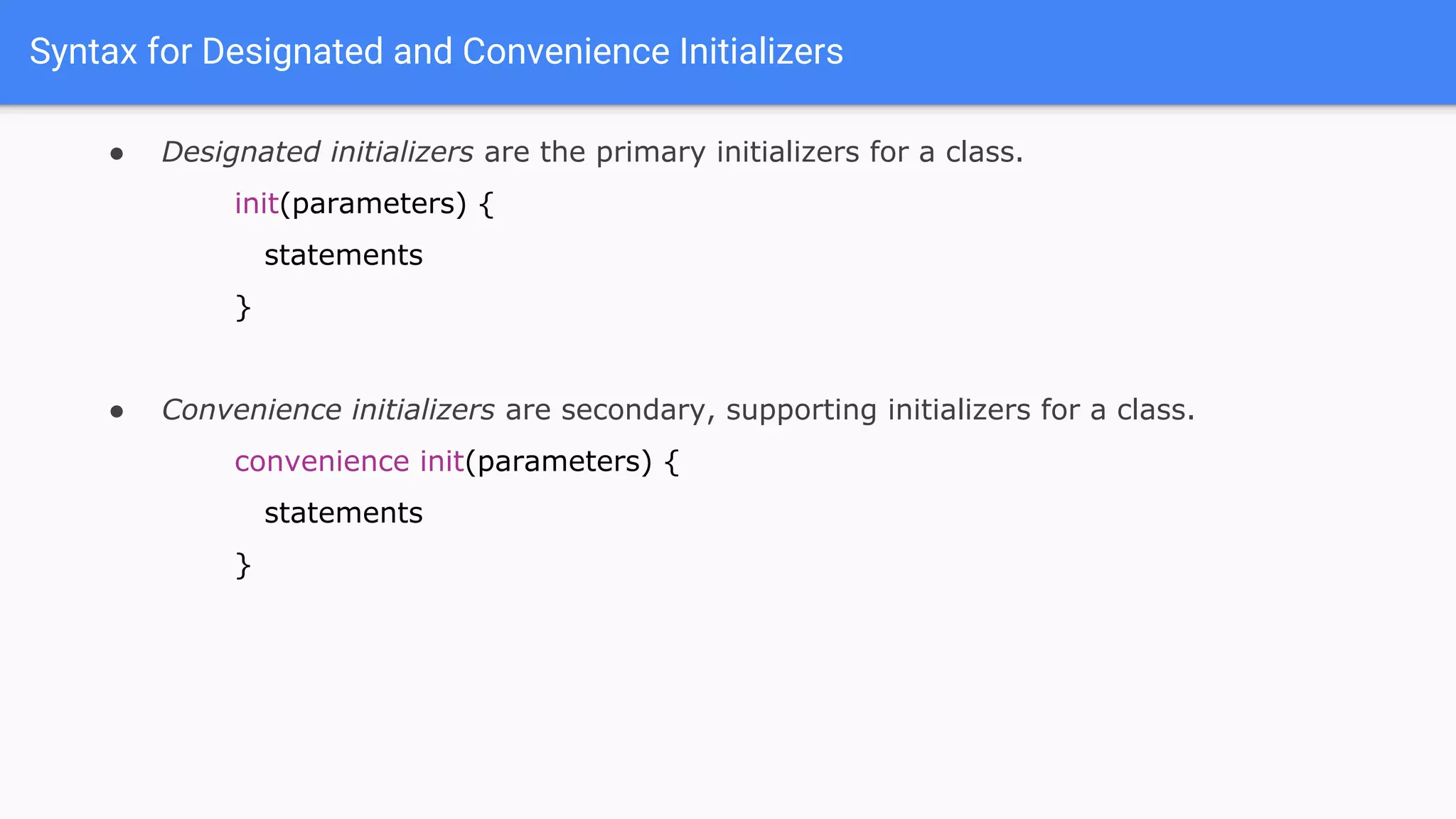
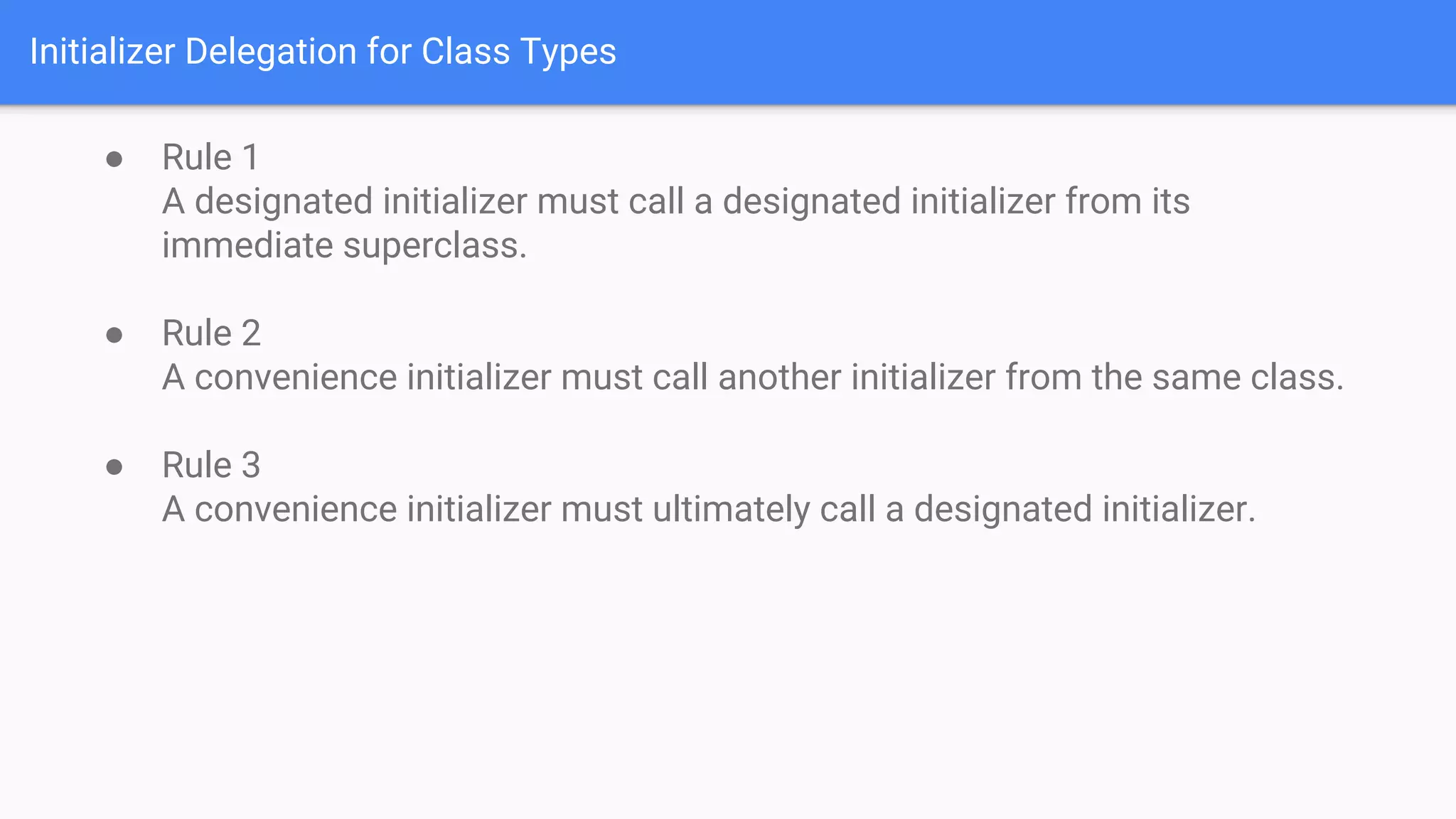
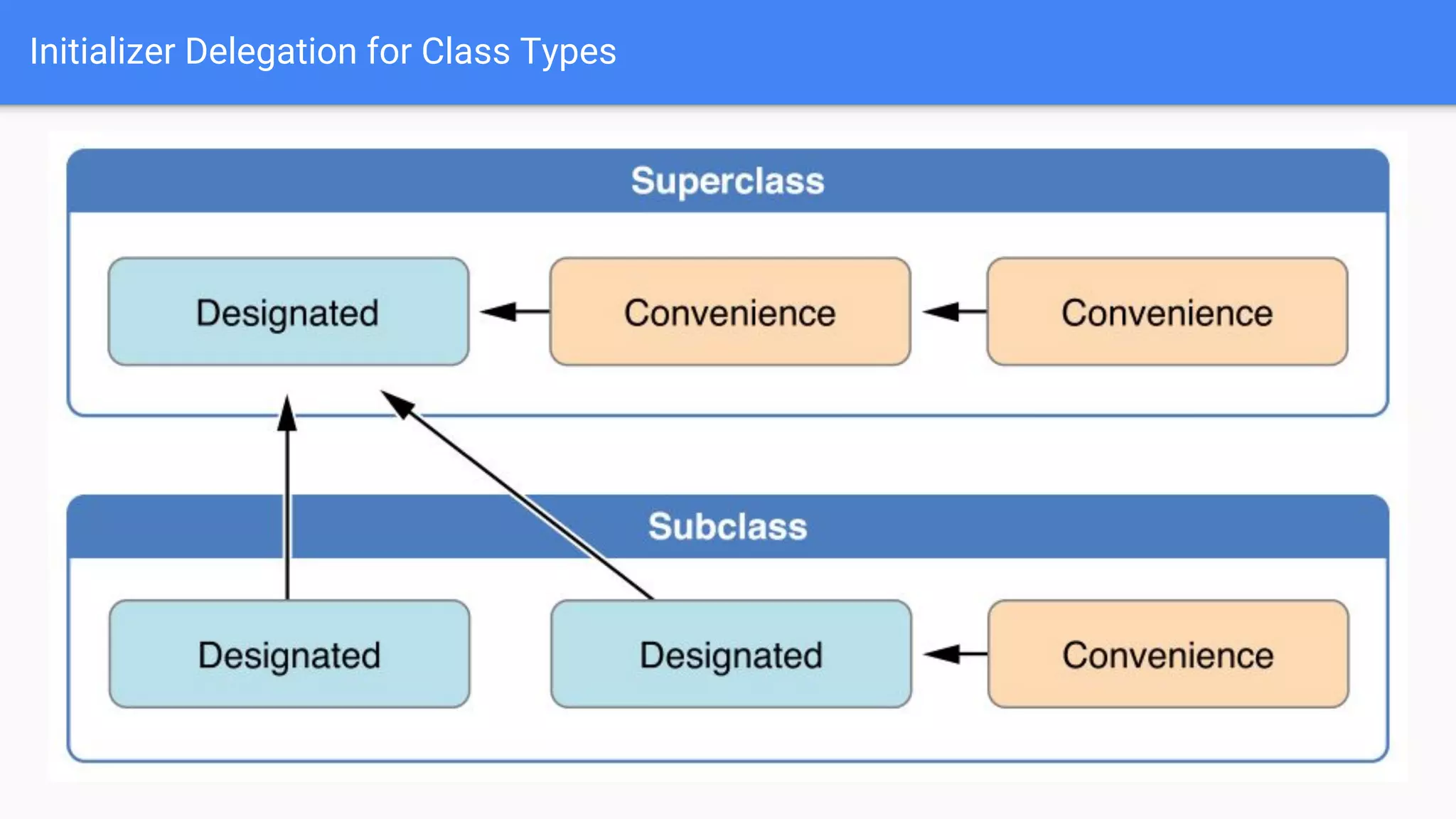
![Designated and Convenience Initializers in Action
class Food {
var name: String
init(name: String) {
self.name = name
}
convenience init() {
self.init(name: "[Unnamed]")
}
}
class RecipeIngredient: Food {
var quantity: Int
init(name: String, quantity: Int) {
self.quantity = quantity
super.init(name: name)
}
override convenience init(name: String) {
self.init(name: name, quantity: 1)
}
}](https://image.slidesharecdn.com/fromandroid2fjavatoswift2-180706025311/75/From-android-java-to-swift-2-18-2048.jpg)
